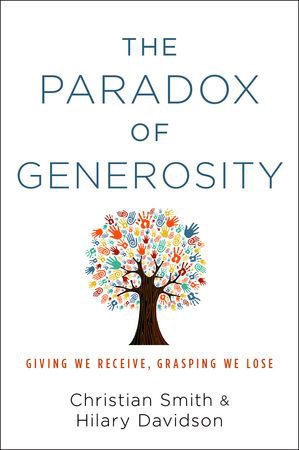
For most religious believers, it is an article of faith that it is more blessed to give than to receive. For at least two University of Notre Dame sociologists, it is an article of fact as well.
In their recently published book, “The Paradox of Generosity: Giving We Receive, Grasping We Lose,” Christian Smith, Notre Dame’s William R. Kenan Jr. Professor of Sociology, and sociology doctoral candidate Hilary Davidson provide empirical evidence in support of the biblical admonition. According to their analysis of measurable data, people who are generous with their money, time and associations are happier, healthier and more resilient than their less generous counterparts.
The book, published last month by Oxford University Press, makes use of information gathered in Notre Dame’s five-year Science of Generosity Initiative, Smith’s unprecedented multidisciplinary nationwide survey that found that only 2.7 percent of Americans give a 10th or more of their income to charity, at least 86.2 percent give away less than 2 percent of their income and nearly half give nothing.
Smith and Davidson argue that this reluctance to give not only deprives those in need, but also diminishes the happiness of those who could, but don’t, help them.
“By grasping onto what we currently have,” Smith writes, “we lose out on better goods that we might have gained. In holding onto what we possess, we diminish its long-term value to us. By always protecting ourselves against future uncertainties and misfortunes, we are affected in ways that make us more anxious about uncertainties and vulnerable to future misfortunes. In short, by failing to care for others, we do not properly take care of ourselves. It is no coincidence that the word ‘miser’ is etymologically related to the word ‘miserable.’”
Contact: Christian Smith, 574-631-4531, Chris.Smith@nd.edu; Hilary Davidson, hdavidso@nd.edu